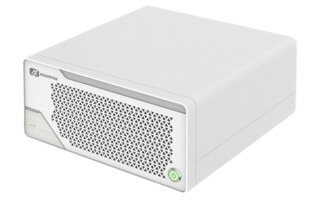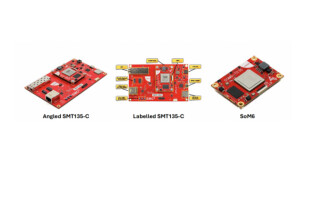Orca Systems Announces World’s First Fully Integrated SoC Solution for Direct-to-Satellite IoT Connectivity
February 17, 2022
News

Orca Systems, a fabless semiconductor company delivering digital RF technology, announced its first wireless system-on-chip (SoC) solution for the satellite Internet of Things (IoT), the ORC3990.
The company, which focuses on cost-effective, low-power wireless solutions for IoT applications, designed and developed the fully integrated ORC3990 SoC to meet the demands of satellite IoT connectivity. Orca Systems’ new SoC solution provides enabling RF technology for Totum, an innovator in IoT connectivity, enabling direct-to-satellite, indoor operation over Totum’s Low Earth Orbit (LEO) network.
The ORC3990 SoC integrates all required system functions into a single, cost-effective device in a very small 68-QFN package. An essential building block of the SoC design includes Orca Systems’ flexible, third-generation Live Wireless RF and digital radio subsystem, which has been customized to support the requirements of Totum’s LEO satellite network. Additional function blocks integrated within the ORC3390 SoC include a low noise amplifier (LNA), a digital power amplifier (PA), the Totum satellite modem, power management unit (PMU) subsystem including all analog blocks, dual Arm Cortex-M0+ CPUs for separate network and application processing, all necessary memory (volatile and non-volatile) for the on-chip CPUs, required security functions, and key analog and digital peripherals.
Orca Systems’ technology assets in the RF, analog, digital transceiver, and power management domains served as SoC building blocks and key elements of the ORC3990 design. These core competencies, combined with Orca Systems’ systems architecture and semiconductor design/integration expertise, has enabled the company to support partners like Totum with highly integrated digital RF solutions offering the highest performance, lowest total system cost and lowest power consumption.
A Totum satellite technology based terrestrial endpoint for a LEO network using the ORC3990 SoC requires a minimal bill of materials (BOM). External components are reduced to a temperature-compensated crystal oscillator (TCXO), passive filters and switches, a PCB antenna and a battery. For simple, compact “tracker-on-a-chip” applications supporting global connectivity and positioning, a sub-$10 endpoint solution is possible based on the ORC3990 SoC.On-chip sensors provide temperature of an ORC3990-based IoT endpoint. The device supports a suite of digital and analog interfaces allowing it to seamlessly connect to sensors that detect temperature, humidity, shock, vibration and flow.
“Orca’s unique architecture lends itself to integrating everything required in an IoT-focused SoC application,” said John McDonough, CEO of Orca Systems. “Manufacturing the ORC3990 SoC with GlobalFoundries’ 22FDX 22nm FD-SOI technology assured a cost-effective, low-power SoC solution that will be highly competitive in today’s market. Our innovative approach to IC design leverages extensive reuse of our SoC architecture, circuitry and methodologies, enabling us to achieve first-time-right silicon in one year of design for our partner Totum.”
For more information, visit: www.orcasystems.com.





